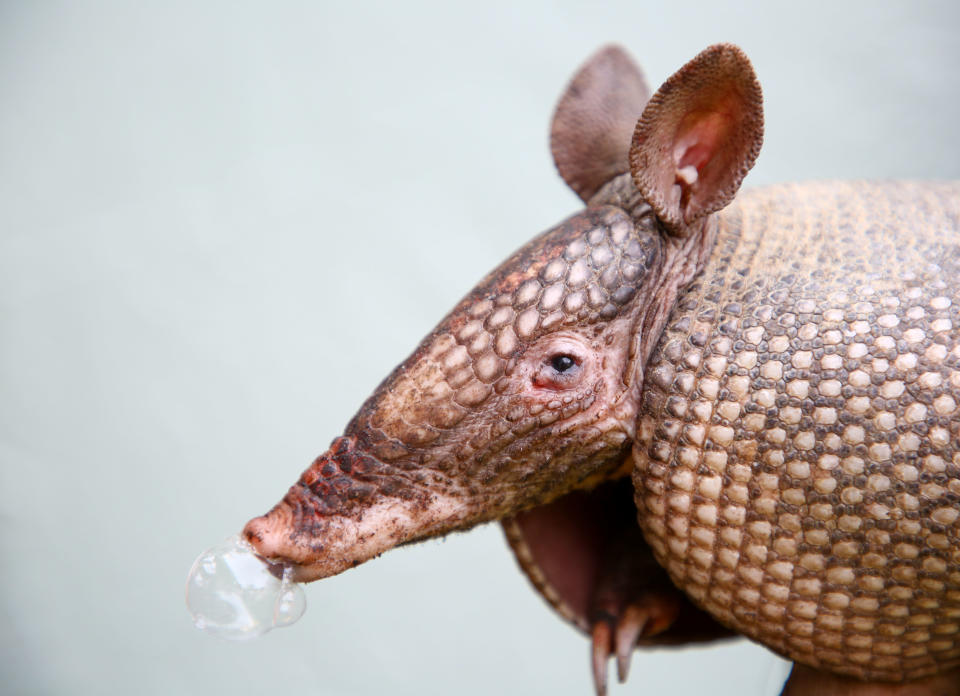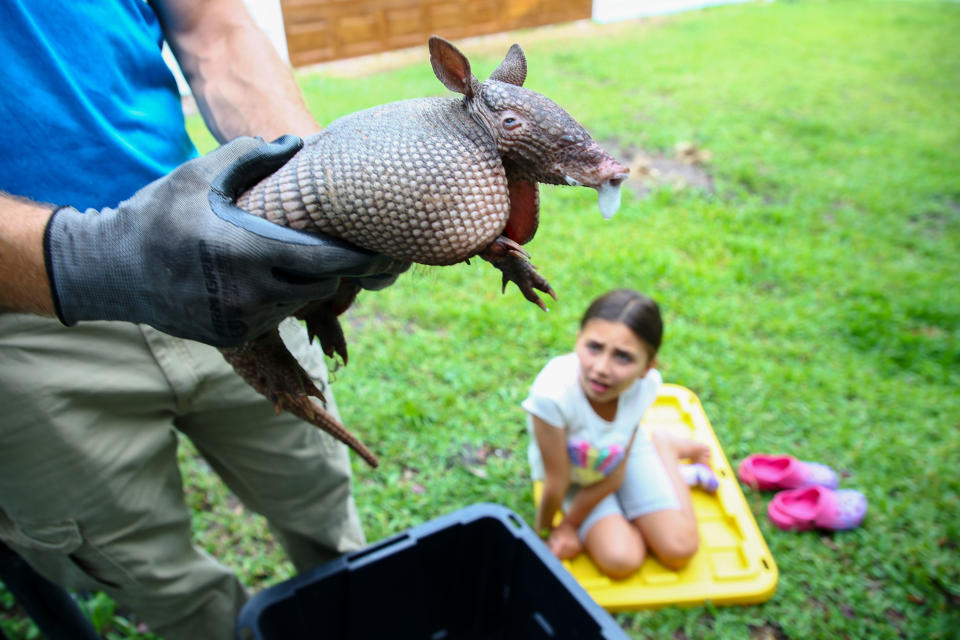5 tips on managing leprosy risk in Florida
GAINESVILLE — Florida has seen an increase in cases of leprosy, the ancient disease that can cause nerve damage in humans. The epicenter is in Brevard County.
A group of scientists teamed up last year to investigate. They’re focusing on armadillos. The nocturnal mammals are known to carry the slow-growing bacteria responsible for leprosy, also known as Hansen’s disease.
Researchers believe the animals play a role in spreading the rare illness to people, possibly through soil contamination. The critters are common across the state but not in southern environments like the Keys, Everglades and Big Cypress, according to the Florida Museum of Natural History.
The Tampa Bay Times recently interviewed several public health experts about the situation. While much still remains a mystery, scientists gave some preliminary advice on how people can stay safe.
Watch out for burrows
Armadillos sleep underground in burrows. The critters often dig them under home foundations and pool decks, said David Lueck, owner of The Trapper Guy, a wildlife management company in St. Petersburg.
Avoid contact with burrows, said Charlotte Avanzi, a Colorado State University researcher who specializes in leprosy.
If digging up a burrow, wear gloves and consider donning a face mask, said Juan Campos Krauer, a veterinarian at the University of Florida.
Don’t pick up armadillos, he added. And don’t play with them, said John Spencer, a scientist at Colorado State University who studies leprosy transmission in Brazil.
Be careful with soil
Single-cell amoebas, which live in soil, can harbor leprosy, lab research shows. Armadillos may pass the bacteria to them.
Wear gloves if working with dirt, and try not to bring soil into your home, Campos Krauer said. Wash your hands afterward.
Raising your garden or putting a fence around it — even just a foot tall — can keep the animals out, he said.
Avoid soil if you’re not wearing gloves and have wounds on your hands, he added.
Stay mindful when hunting
It’s legal to hunt armadillos year-round in Florida without a license. If you take one, wear gloves and a face mask, Avanzi said.
Don’t put them on the menu
People shouldn’t eat the animals, Spencer said.
Cooking armadillo meat would effectively kill the bacteria. But handling it beforehand could expose people to blood and other fluids.
A raw liver and onion ceviche is sometimes prepared in Brazil, according to a study that Spencer and other experts published in 2018.
“If there was one best way to get infected, it would be by eating a raw armadillo liver,” Spencer said.
Lueck, The Trapper Guy owner, recalls eating a cooked armadillo when he was a kid. The taste?
“A chicken kind of flavor,” he said.
Panic is unnecessary
Leprosy is uncommon in Florida and across the United States. Scientists estimate that more than 95% of the global population has a natural ability to ward off the ailment.
“Don’t get freaked out,” Spencer said. “I have people writing to me … they’re like, ‘My son touched an armadillo at this park, and then it ran away. Should I be worried?’”
His answer: no.


